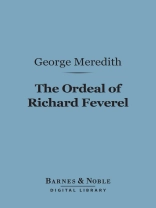For its time, The Ordeal of Richard Feverel (1859) had a sexual frankness about adultery, illegitimacy, and seduction that had a disastrous effect on Meredith’s reputation as a novelist for many years. Meredith defied Victorian convention and expectations in his three-part story of Richard Feverel’s childhood, adolescence, and manhood. Abandoned by his mother, who leaves to be with her lover, Richard’s father must raise the boy himself and does so according to his own strict “System, ” based on Science and Reason. Richard eventually rebels and marries a woman whose social class his father disapproves of. Final reconciliation comes at a high price for both father and son.
Circa l’autore
George Meredith (1828 –1909) was a English novelist and poet. His early novel The Ordeal of Richard Feverel (1859) met with critical disapproval, but he had success with The Egoist (1879), a novel which combined comedy and psychology for the purposes of witty social criticism. The subjection of women, was a recurrent theme in his work and central in his most successful novel, Diana of the Crossways (1885). Meredith’s fifty-sonnet sequence about a loveless marriage, Modern Love (1862) was acclaimed for its candor about married life and for its extension of the sonnet form—each sonnet containing sixteen lines.












